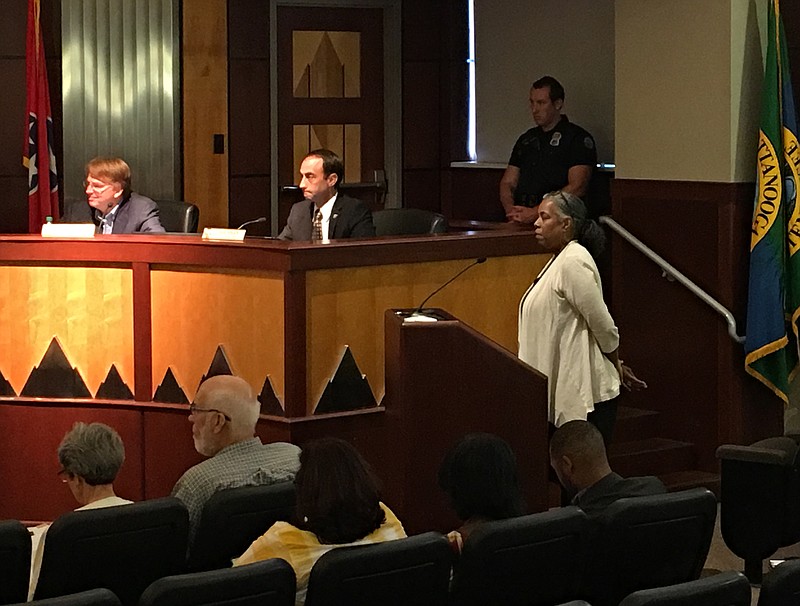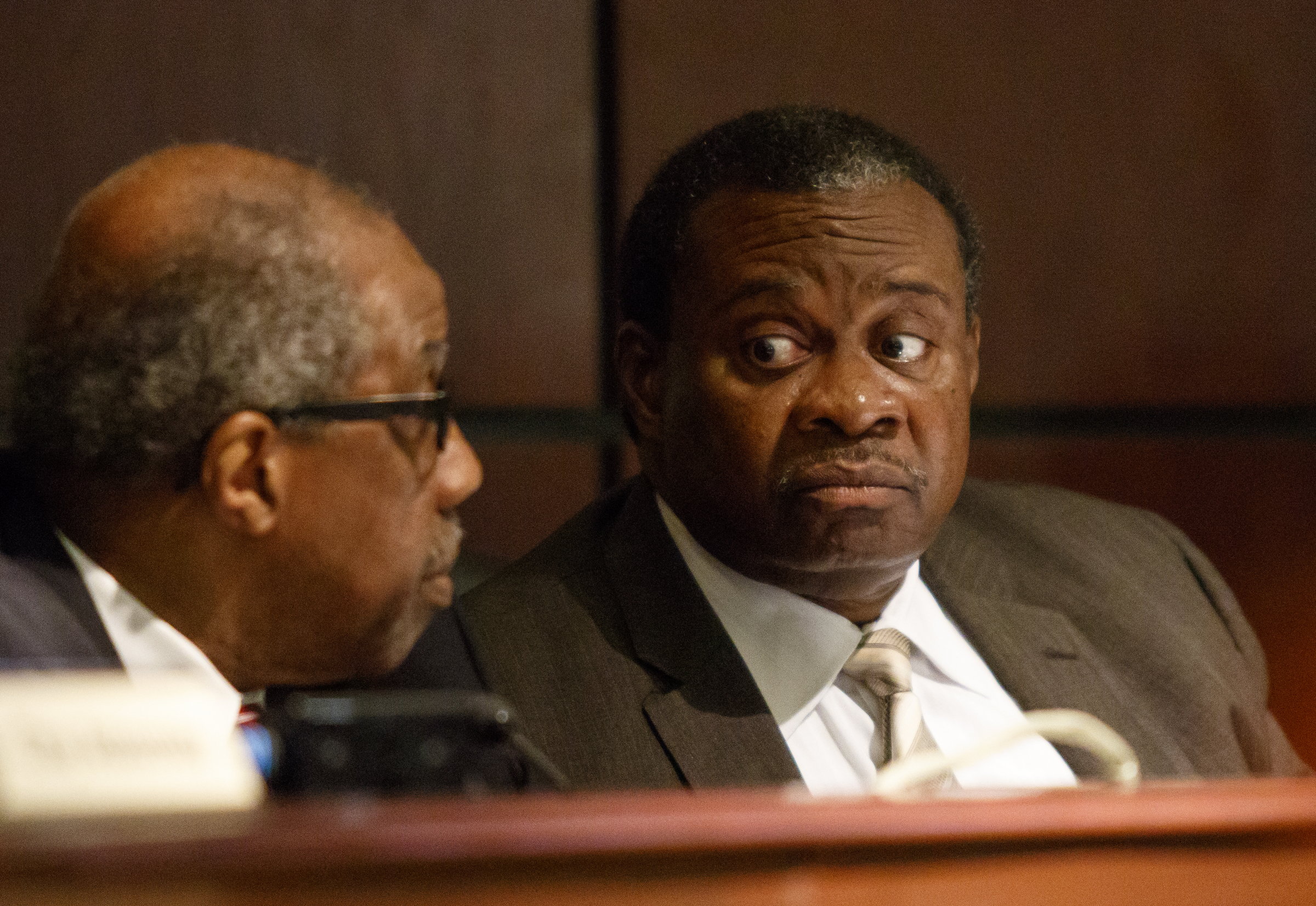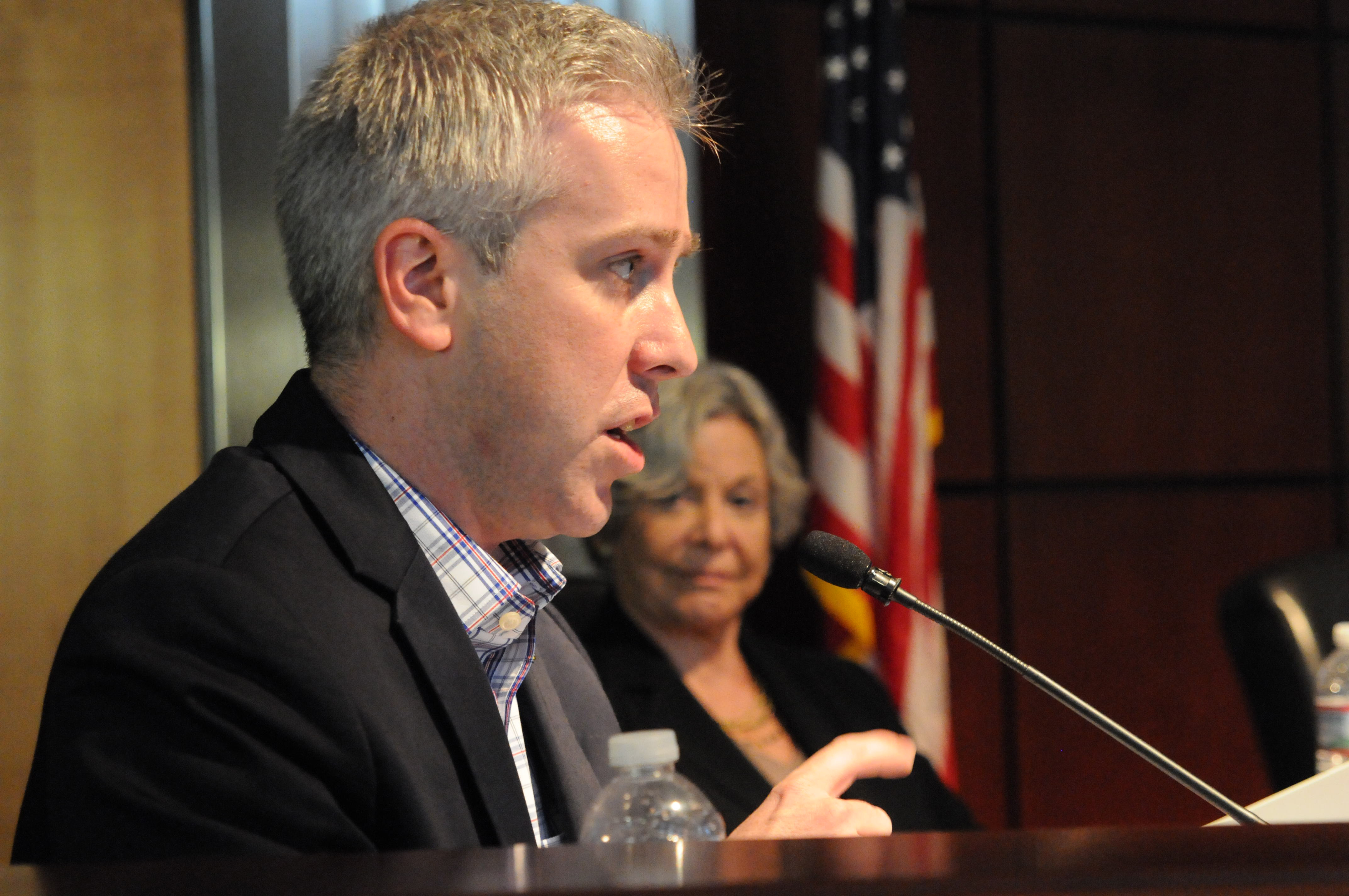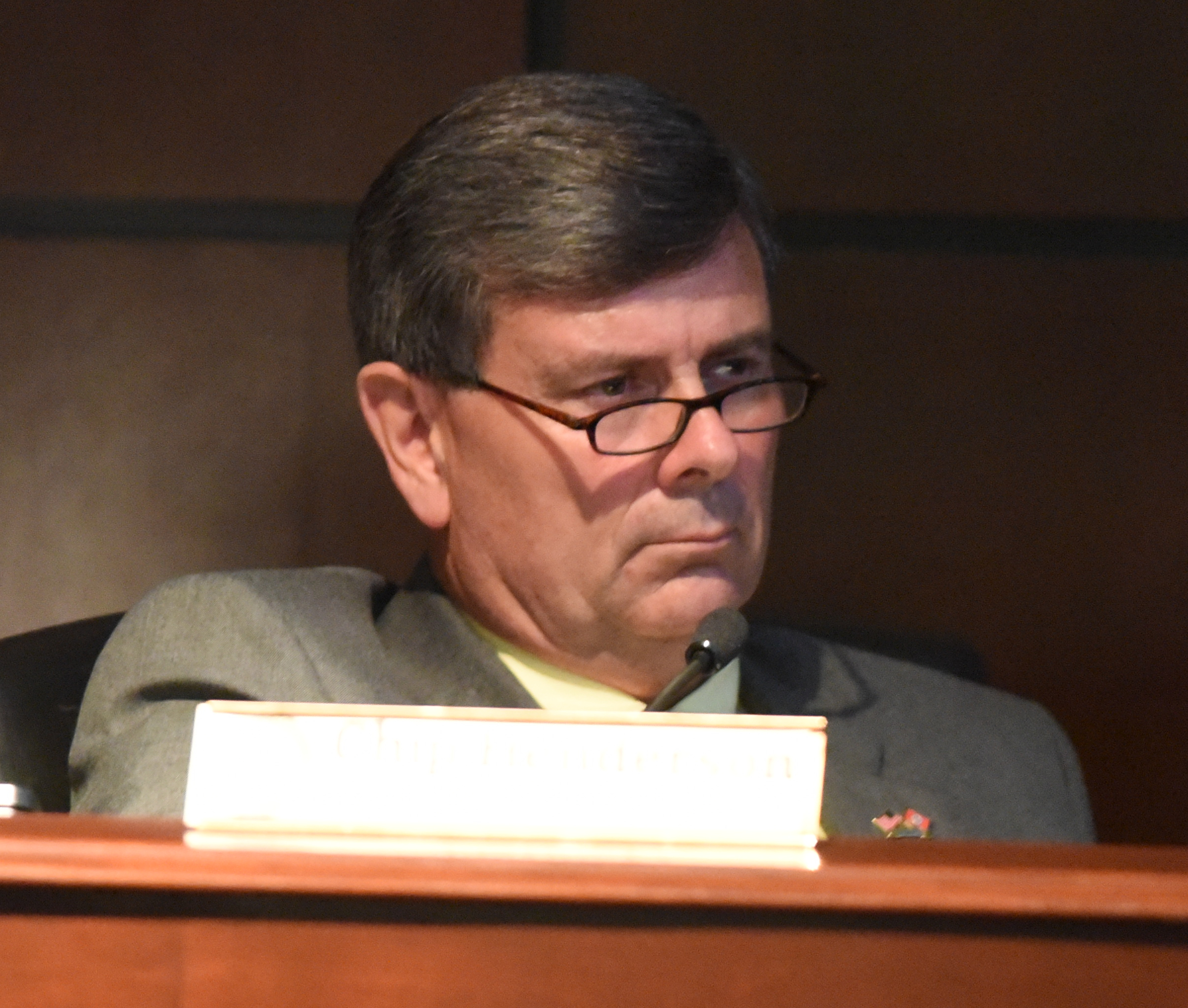 Chattanooga City Councilman Larry Grohn listens to a presentation on the city's wastewater infrastructure during an afternoon agenda session at the City Council building Tuesday, March 29, 2016, in Chattanooga, Tenn. The council voted Tuesday to withdraw its subpoena of District Attorney Neal Pinkston, which the council issued after Pinkston's refusal to appear before the council to discuss the city's violence reduction initiative.
Chattanooga City Councilman Larry Grohn listens to a presentation on the city's wastewater infrastructure during an afternoon agenda session at the City Council building Tuesday, March 29, 2016, in Chattanooga, Tenn. The council voted Tuesday to withdraw its subpoena of District Attorney Neal Pinkston, which the council issued after Pinkston's refusal to appear before the council to discuss the city's violence reduction initiative.The Chattanooga City Council has narrowly approved a new set of tax breaks to encourage developers to create more affordable housing across the city.
The tax incentive plan, known as a payment-in-lieu-of-taxes - or PILOT - program, calls for developers to set a significant portion of their rental units at pricing below market rate. In return, they receive property tax freezes for up to 10 years for new construction or 14 years for rehabilitation of existing sites. The program's tax freeze allows participating developers to pay taxes based on the property's value before any new construction or rehabilitation takes place.
On Tuesday, the council voted 5-3 in favor of the measure, with Councilman Jerry Mitchell abstaining.
Council Chairman Moses Freeman and council members Chris Anderson, Carol Berz, Russell Gilbert and Yusuf Hakeem voted for the new plan, while council members Larry Grohn, Chip Henderson and Ken Smith voted against it. Prior to the vote, several council members attached amendments intended to bolster program compliance and shift some administration costs away from taxpayers.
Grohn criticized the new housing tax incentive program, stating the thresholds for low-moderate incomes were "not truly affordable."
To apply for the new PILOT, developers must make at least half of their rental units affordable to those who earn up to 80 percent of the area's median income. For a single-person household, that equates to a $34,300 annual salary, according to U.S. Department of Housing and Urban Development figures. The 80 percent AMI requirement caps rent at $858 for units leased at that income threshold.
Chattanooga Economic and Community Development Administrator Donna Williams said developments come "in all kinds of configurations," citing one plan composed of housing based on a mixture of units priced for households making 50 percent AMI and 60 percent AMI. Developers may not rent the affordable units, described as "income-restrictive," to households earning more than the designated income thresholds, she said.
"If we don't take some action now with affordable housing, we're going to have the same situation as Nashville," Williams said in a committee meeting earlier in the day. "Nashville has an out-of-control housing market."
The citywide approach of the new PILOT will also allow an "infusion of investment" in parts of Chattanooga that have been overlooked by past housing developments, Williams said.
Mayor Andy Berke's last PILOT program, which dates back to 2014, only required developers to make 20 percent of their rentals affordable at the 80 percent AMI threshold and only applied to downtown.
Approved amendments include Anderson's call for increasing the PILOT application fee to $3,500 over the proposed $500 application fee and Berz's request for developers to pay up to $15,000 at closing, compared to paying no closing fee at all. Others attached amendments include Mitchell's call for PILOTs to break ground within two years and Henderson's request for annual review of PILOTs by the council and mandatory clawback language for non-compliant developers.
Mitchell asked his colleagues to consider delaying the vote to give the public time to digest the changes made to the program, but did not make a formal motion to vote on his plea.
Accountability for Taxpayer Money, a citizen watchdog group, offered some praise for the amended version of the PILOT, but continued to call for lower rent caps.
ATM founder Helen Burns Sharp thanked the council "for all the time they spent in making the program better" in an email Tuesday evening.
Contact staff writer Paul Leach at 423-757-6481 or pleach@timesfreepress.com. Follow on Twitter @pleach_tfp.



